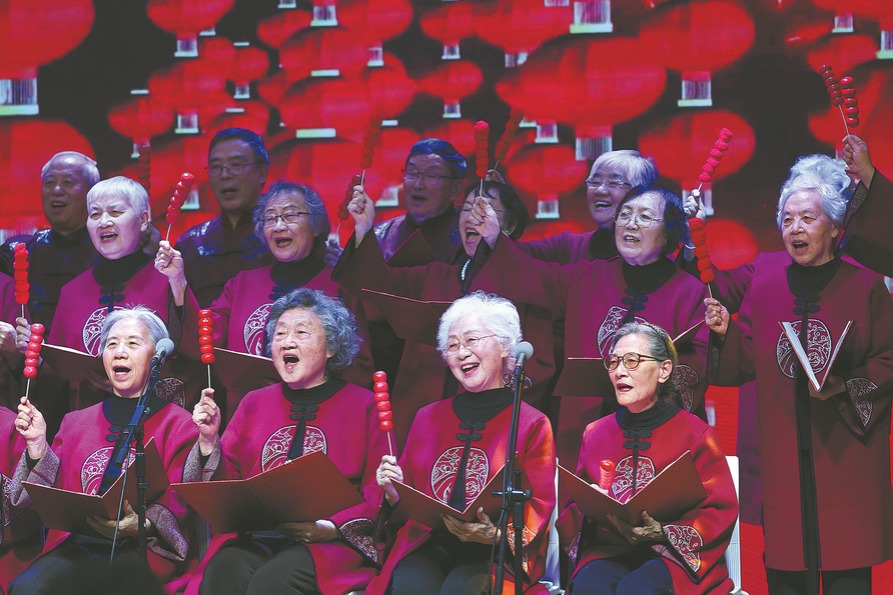Dining ratings: trust or trouble?


Debates arise over restaurant ratings' reliability as patrons turn to lower-rated spots, disrupting conventional dining norms and posing dilemmas for restaurant owners, Gui Qian reports.
It is a common practice to check review sites before settling on a new restaurant for a meal. But can we always trust these ratings? And does a higher score always mean better quality?
After renowned food connoisseur Chen Xiaoqing suggested checking out eateries with ratings between 3.5 and 4 points (out of 5) in an interview, a recent debate has ignited across Chinese social media. This sparked discussions on whether these slightly lower-rated spots might offer even better dining experiences.
More and more patrons, disappointed by the quality of numerous highly-rated restaurants, are now gravitating toward more modest eateries in hopes of uncovering unexpectedly delightful dishes.
Hashtags such as "Youth flocking to 3.5-point restaurants in a 'revenge culinary' trend" and "The best flavors might be hiding in less acclaimed dining spots" are buzzing on Sina Weibo, and accumulating millions of views.
Amy Wang (pseudonym), hailing from Qingdao, Shandong province, has a knack for discovering these "hidden gems" and she shares her insights on rating apps.
As a part-time food blogger, Wang has visited over 200 restaurants in just six months and even received the "Magical Comment Award "from Dianping, a major Chinese online platform for local services and reviews.
According to Wang, the trend of favoring lower-rated restaurants reflects a growing distrust in the rating system, especially among young diners. Ultra-high scores are not always reliable, as they can be artificially inflated through various means.
For example, some restaurants might offer incentives like complimentary dishes or discounts for positive reviews, and others might train staff to leave reviews on behalf of customers, or even pay for professional services to raise their scores.
"Even labels like 'locals' favorite' might be obtained through deceit — some places hire internet ghostwriters using local IP addresses," Wang explained.
Given these issues, food enthusiasts have realized that solely relying on ratings isn't the most dependable way to choose restaurants of better quality.
"The years a restaurant has been operating also matter, since most dining places struggle to survive beyond six months," Wang said. "An older establishment must be doing something right to thrive in such a competitive industry."
Reading through comments, especially the negative ones, can also be enlightening, according to Wang. "It helps you figure out if the criticism is about service, ambiance, or food quality, and whether you can overlook it. But you should also be wary of overly detailed comments with lots of words and pictures because they are often insincere," she said.
Sometimes, 5-star restaurants can be overrated, but that doesn't mean that poorly-rated ones always offer a stellar culinary experience.
As Wang pointed out, circumstances vary greatly in different places. In major cities like Beijing and Shanghai, where nearly every aspect of life is tied to the internet's rating system, ratings can be reliable. Surprises are more likely in less-developed areas, where online ratings aren't as meticulously managed, and customers aren't as keen on sharing their experiences on social media.
Wang's most memorable experience at a "3.5-point restaurant" happened in a small town in Hanzhong, Shaanxi province. "I visited a place with only two reviews on Dianping, and to my surprise, I had the best remipi (rice slices) of my life," she recalled. "It shows that there are some undiscovered culinary delights yet to be acknowledged by the rating system."
Having worked in Beijing for over seven years, Wang still considers herself a beipiao, or "Beijing drifter".She focuses on exploring modest eateries suitable for solo diners on a budget, dubbing her food blog account "Dagongren Meishi Tujian", or Illustrated Handbook of Food for Laborers.
Like most ordinary workers, especially young people, Wang doesn't have many opportunities for fine dining, but she enjoys grassroots foods like fried chicken, beef noodles, and malatang, a spicy Sichuan broth with meat and vegetables. "Eateries selling these foods typically receive lower ratings compared to high-end restaurants. But I believe that authentic culinary delights are abundant in everyday life," she said.




































